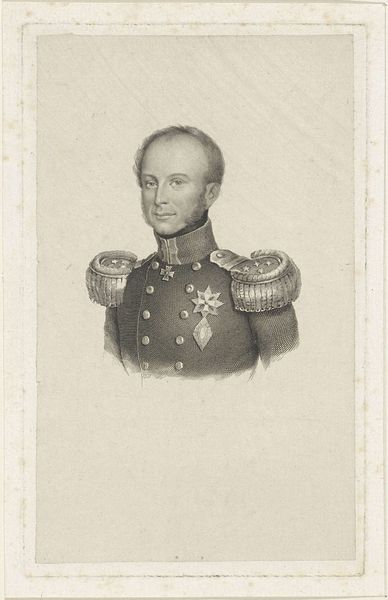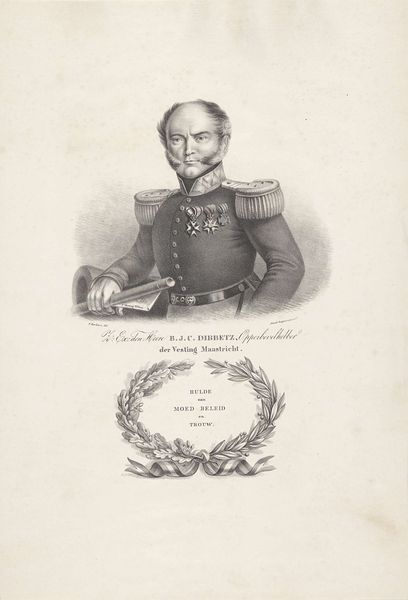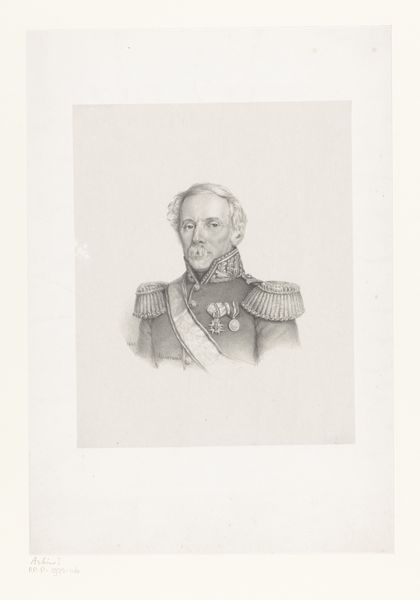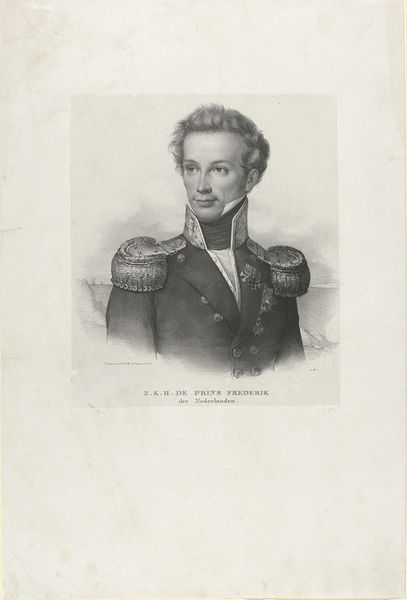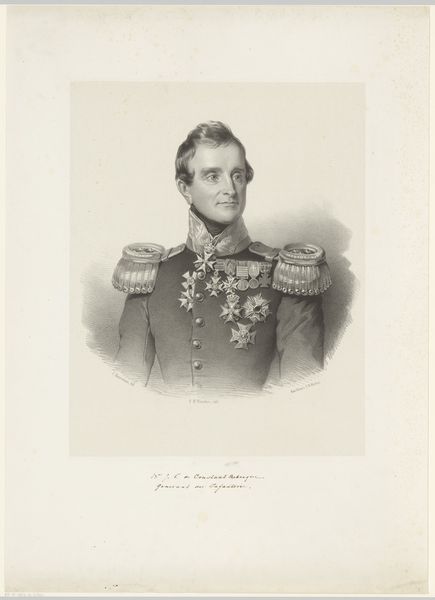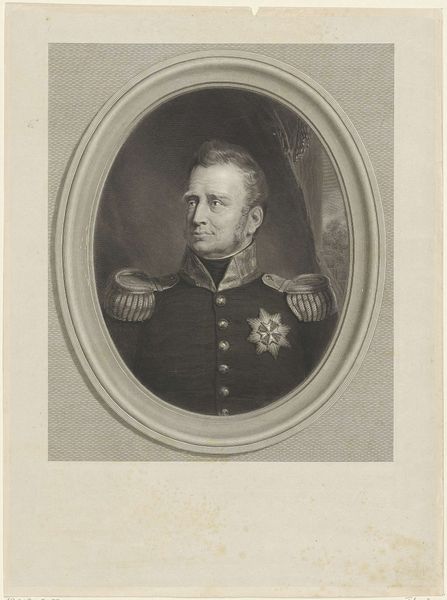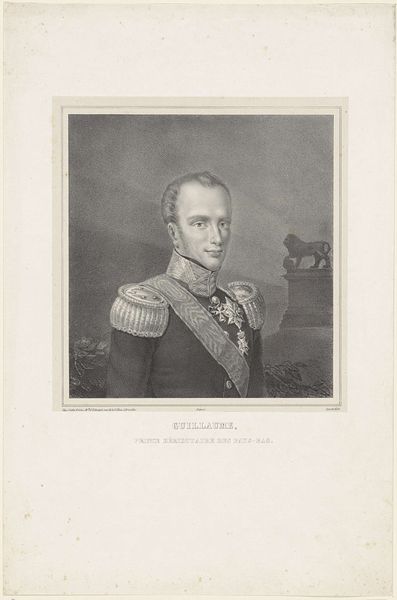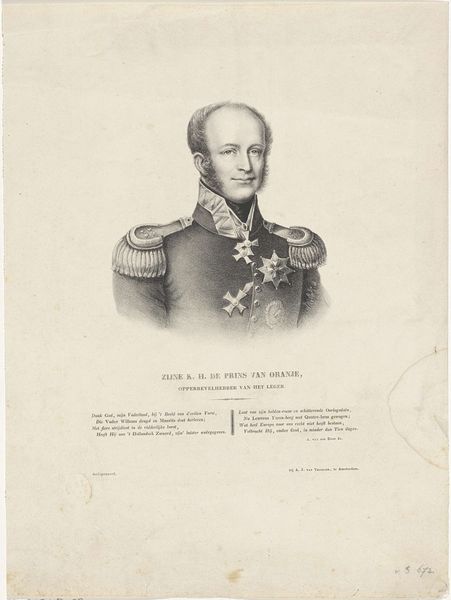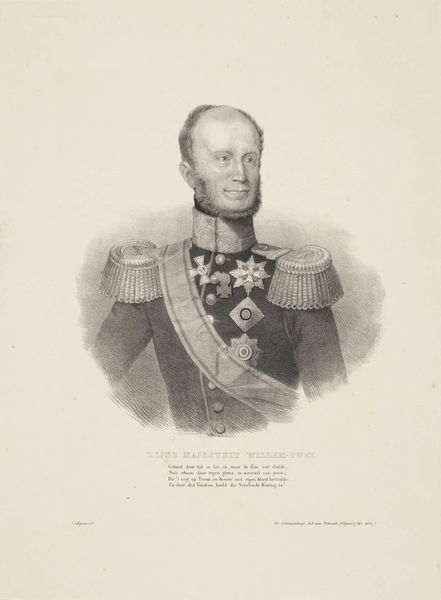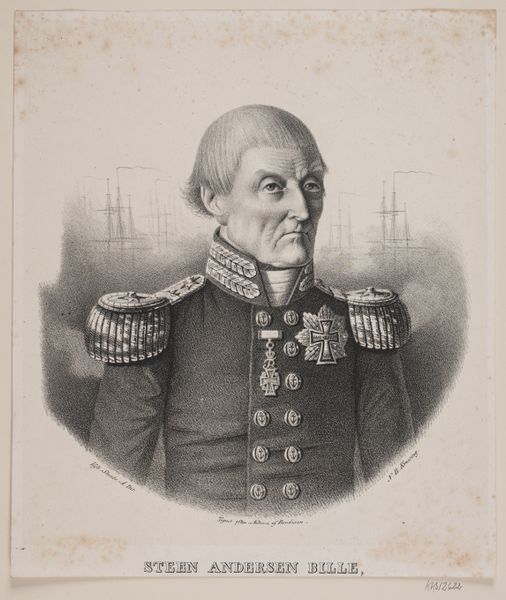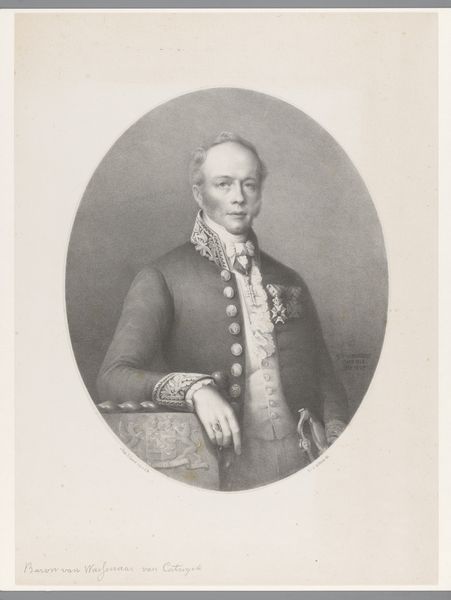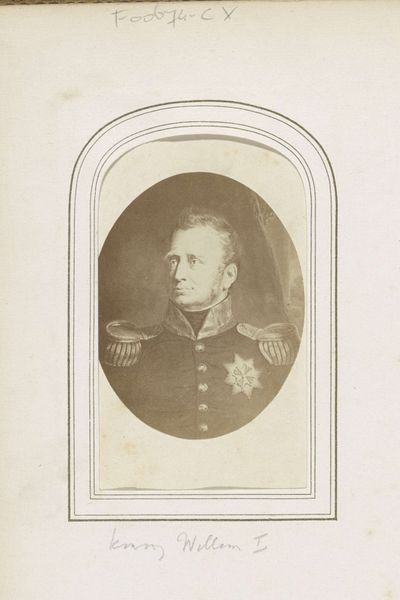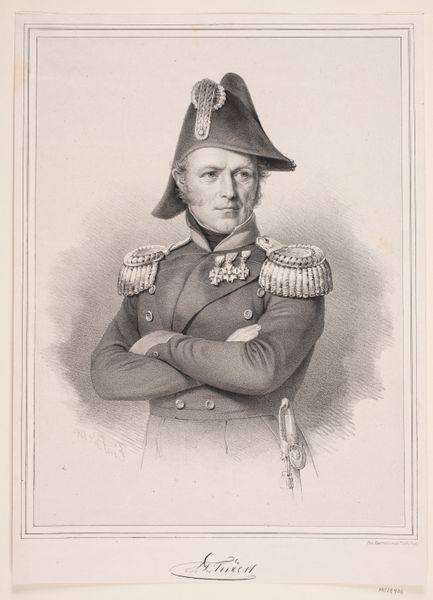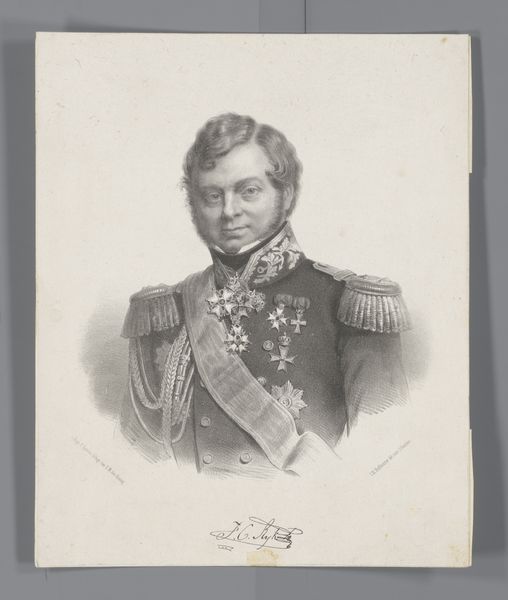
print, etching, engraving
#
portrait
# print
#
etching
#
historical photography
#
pencil drawing
#
romanticism
#
history-painting
#
academic-art
#
engraving
Dimensions: height 255 mm, width 213 mm
Copyright: Rijks Museum: Open Domain
This portrait of Bernardus Johannes Cornelis Dibbets was created in the mid-19th century by Gerardus Antonius Josephus Brenta. It’s a lithograph, meaning that the image was drawn on a flat stone with a greasy crayon, then chemically treated so that ink would adhere only to the drawn areas. Look closely, and you can see the subtle gradations of tone achieved through this process, giving the image a soft, almost dreamlike quality. Lithography, invented just a few decades earlier, democratized image-making. It allowed for relatively quick and inexpensive reproduction, making art more accessible to a wider audience. The level of detail achieved speaks to Brenta’s mastery of this emerging technique. Consider the labor involved in creating this portrait. From the quarrying of the limestone to the skilled hand of the artist, it reflects a shift towards industrialized image production. This print offers us insight into both the sitter and the technologies of its making, blurring the lines between fine art and commercial craft.
Comments
No comments
Be the first to comment and join the conversation on the ultimate creative platform.
